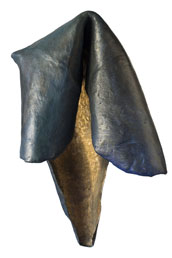Fiction Review
Got No Secrets
by Danila Botha
Toronto, ON: Tightrope Books, 2010
141 pp. $18.95
Got No Secrets is electric. Unfortunately, it‘s the kind of electricity that crackles forth from a disconnected wire, not channelled anywhere in particular, showering sparks just to demonstrate the basic fact of its elemental power. Danila Botha’s collection of stories is a forceful but ultimately frustrating work, composed of raw energy but without anything really worth noticing behind it.
The major problem with Got No Secrets is in its constant reliance on repetition of theme and circumstance. It becomes exhausting, finishing one story then turning to another that picks up in an identical manner to the last. For more than half of the book a formula becomes clear. In it, a young woman reflects on how high/hungover/miserable she is, gets up to go to work in dirty clothes, explains how she arrived at her current state, describes her unhealthy relationship with a man and then arrives at a hasty conclusion wherein she finds a glimmer of hope or realization of despair.
The occasional appearance of a fresh setting or cultural background gives the book just enough momentum to continue limply forward as Botha hobbles into the concluding stories. The otherwise rout heroin-addiction tale of Smacked, one that is only elevated through its dashes of South African reflection, stands alongside the book’s standout, Heroin Heights, as a welcome change of pace. Breaking away from drug-addicted Westerners, Botha finds greater success in describing alternative (although often equally sad) scenarios in which overweight children try to appease their parents by shedding pounds (benignly in The Apple Falls Far From the Tree, violently in the child-abuse drama of Just, Quietly, Do It) or confused women attempt to make something of their awful situations with overwrought conclusions never far at hand.
But readers have to be willing to slog through the first half of the book before any of these stories begin to appear and, unfortunately, the good faith of those who honour that commitment is often squandered. Even when Botha breaks her usual mode of character and setting, the rawness of her writing too regularly slips into melodrama. The clipped, minimalist first person prose (broken only in the collection’s last story) alternately wrenches and pulls back, never allowing for the kind of cathartic intimacy or out-of-body detachment that such consistently dark subject matter demands.
Partially because of this effect, it’s unclear whether or not Botha’s stories are a sardonic condemnation of hedonistic living or a send-up of the miserable wallowing that her characters endure. She gives a compassionate eye to her monsters to be sure, but there’s also a deliberate level of gross-out (Jesus Was a Punk Rocker’s protagonist, Mackenzie, vividly recounting peeing in a jar in bed while describing the vomit still stuck in between her teeth) that invites disgust and alienation. And when, at times, this way of writing is most effectively employed, it still comes off overwrought. Paradox, the first story in the collection, reads like a cautionary after-school special about the dangers of drug use. Typical of Botha’s flip-flopping sympathies, it also comes off like a high school punk kid’s attempt at validating anarchic nihilism as something other than a spit in the face of overwhelming privilege.
Botha’s characters are also, for the most part, fairly flat and uninteresting. The majority of junkies in literature are Aristotelian devices, functioning less as developed personalities and more as pieces of the overall plot, and Got No Secrets is a classic example of this tendency. If any one of these short stories was crafted into a novel or novella — with a proper supporting cast — then the good aspects of the writing would have more space to come through. As it is, the women that make up the book’s protagonists are one-dimensional, mostly serving as tragic cut-outs that seem to share a hive mind of self-pity and an enthusiastic tendency toward martyrdom.
It’s difficult to care about the ruin of a character that exists only to have that downfall. The reader is never given enough time and space to form any sort of relationship with the haunted, addiction-fuelled women of Got No Secrets. We don’t have enough to go on to feel real empathy for these creations that haven’t been allowed to become whole.
Despite its shortcomings, however, Got No Secrets is Danila Botha’s debut and, looked at as a first effort, it does demonstrate potential. The author’s gift is in channelling viciously honest, highly-kinetic passion for the grit of tragedy into fast-paced stories. With the assistance of a dedicated, uncompromising editor, Botha’s talent — always evident just beneath the flaws —would stand a better chance at being exposed. Although her first book is deeply flawed, the ability experiment in theme and characterization — to recognize and rectify the mistakes made throughout these stories — could be enough to give rise to a unique voice.
Yet, despite this potential, Got No Secrets holds little interest. Bukowski’s body of work taught us that exploring the darkest aspects of mindlessly pursuing pleasure can lead to gutter enlightenment. Danila Botha, however, does not. Got No Secrets leaves the ultimate impression of an author diving into the abyss, again and again, hoping to find an answer that is always out of reach.





No Comments so far ↓
There are no comments yet...Kick things off by filling out the form below.